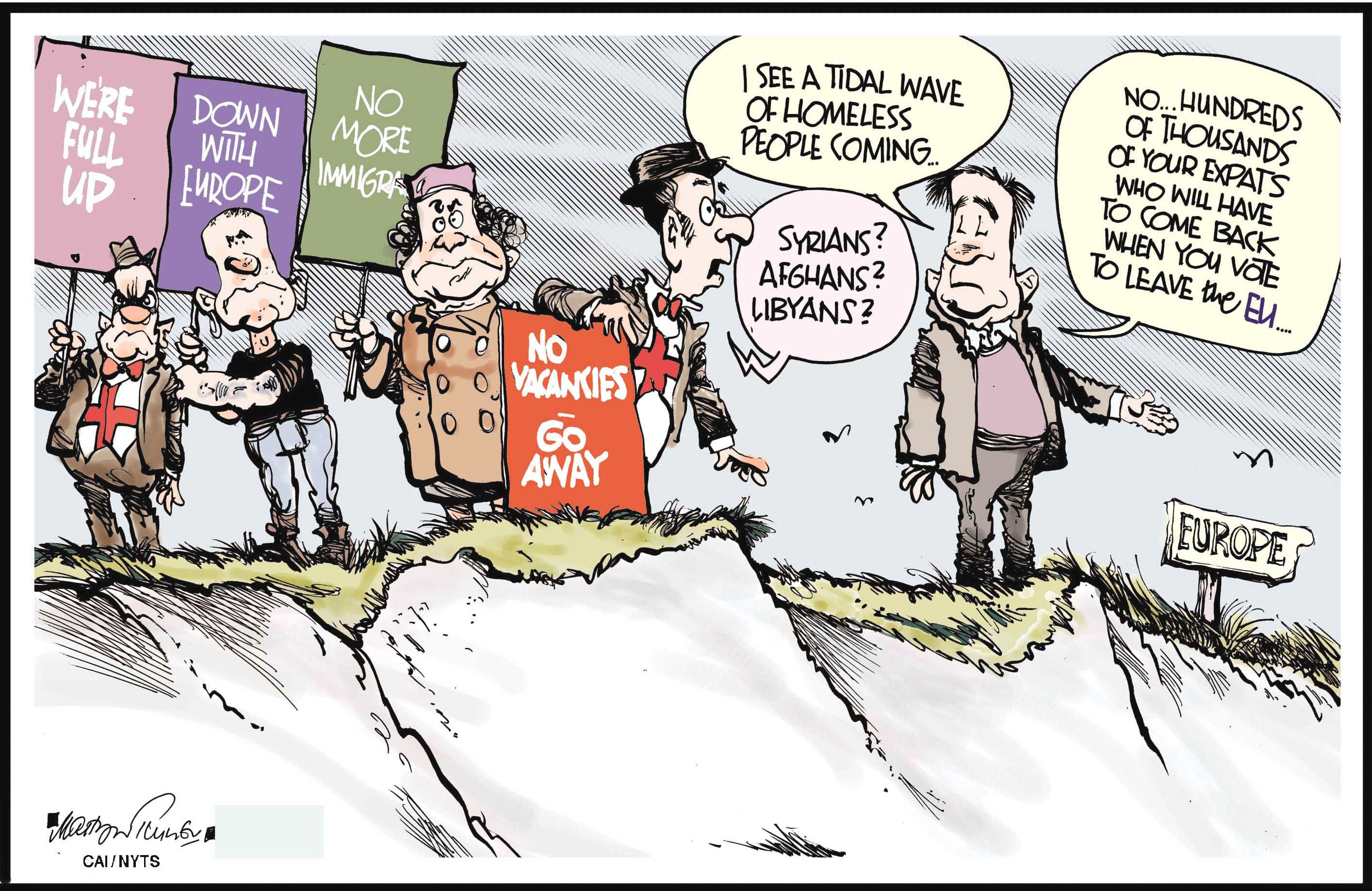Britain's debate over its membership of the European Union is bound to end badly. The country has no good options. Whatever voters in the U.K. decide, they'll come to regret it.
If Britain votes for exit in the referendum promised by Prime Minister David Cameron by the end of 2017, it will likely suffer serious economic harm. Not long after, the U.K. would probably break up as well: The Scots like the EU more than the English do and might prefer independence inside Europe over remaining part of a post-Brexit Britain. Altogether, not a good result.
On the other hand, if Britain votes to stay in, as Cameron intends and as the polls suggest it will, resentment over the country's lost sovereignty and impaired democracy is likely to keep growing. European integration has both a built-in momentum and an unavoidably non-democratic character. This trend has slowed for the moment but will resume. A British vote to stay in therefore won't settle the question of its place in Europe, any more than Scotland's recent vote to remain in the U.K. laid that issue to rest.



















With your current subscription plan you can comment on stories. However, before writing your first comment, please create a display name in the Profile section of your subscriber account page.